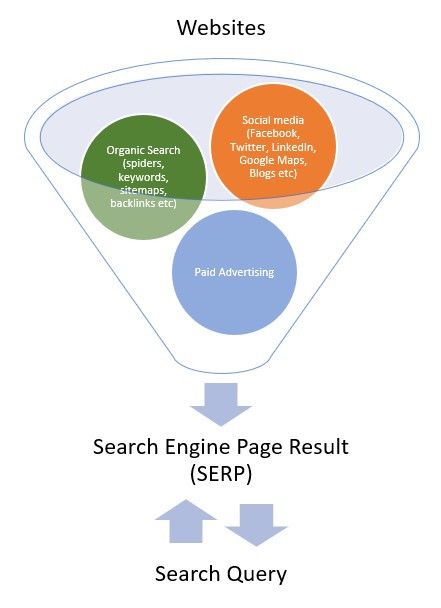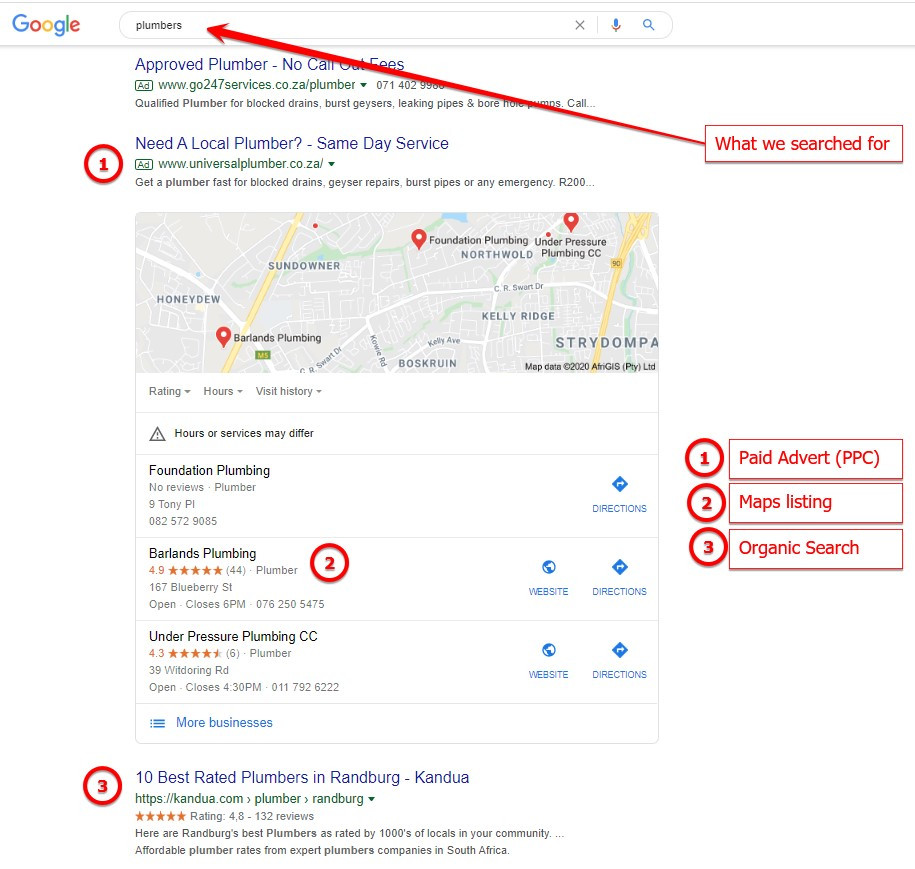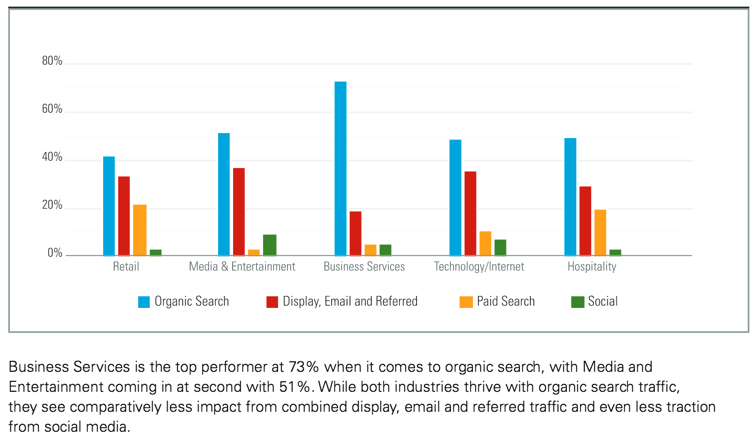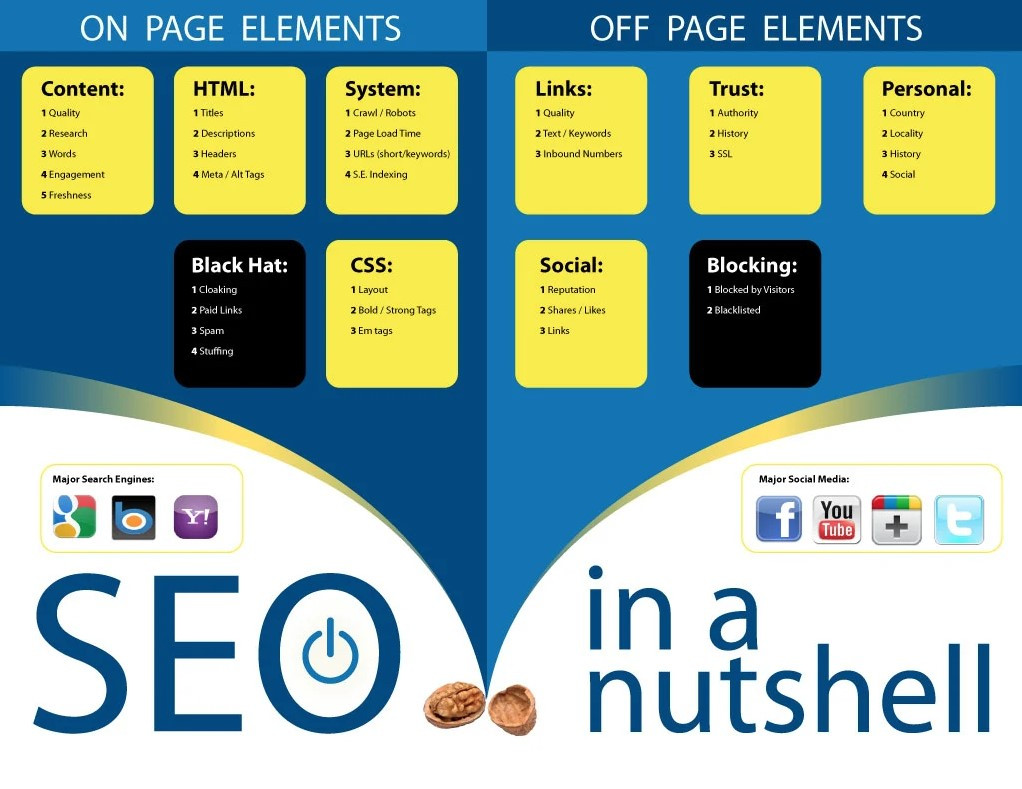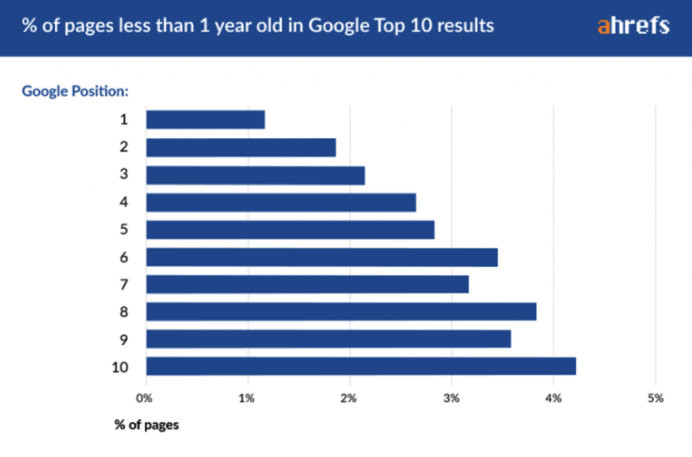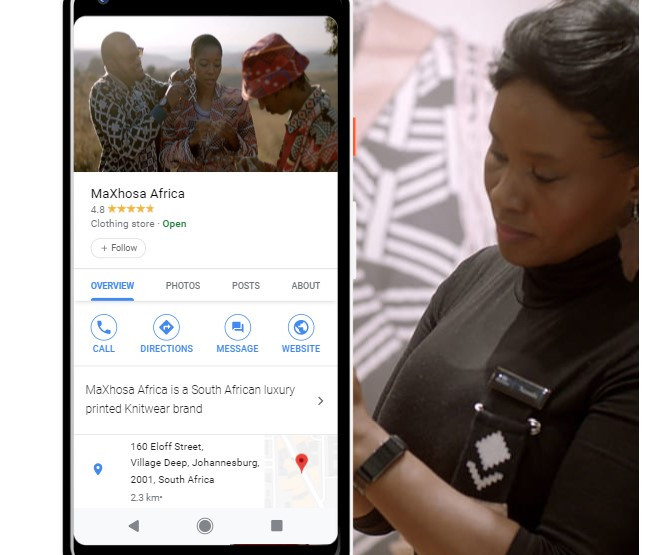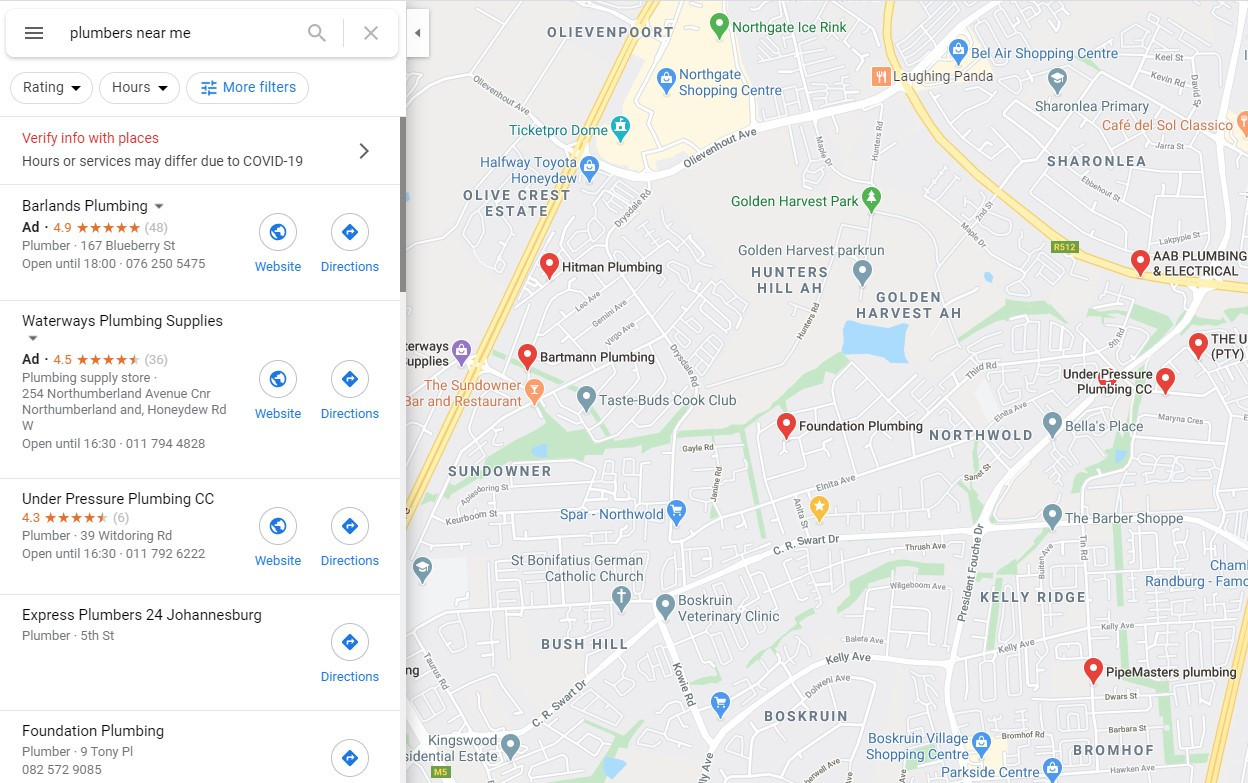Does good website SEO matter?
Think about what your prospective customer is doing when they're using Google…
They're NOT scrolling mindlessly through social media.
They're NOT reading gossip about their friends.
And they're NOT busy doing something else.No. It's the exact opposite.
They have stopped what they're doing. They have typed (or spoken) a search query into Google. They're actively looking for your help.
SEO is all about getting your website to show up in Google, so YOU can provide that person with the help they need (which sooner or later will be your product or service).
by SEOBuddy.com
Today the "web" is people's go-to source of information.
Whether they are looking for a plumber, doing research on a topic or just trying to find information, the Internet is the first place they start....if you don't get found in online search results, you are losing out on potential customers.
So you want people to find your business whenever they do an internet search.
But how do we actually do this? Lets understand how search engines work.
Search query
To use a search engine such as Google, a user enters a search query (i.e. what they are looking for), upon which the search engine presents them with a SERP.
Search Engine Page Results (SERP)
Search engine results pages (SERP) are web pages served to users when they search for something online.
Each result displayed on the SERP includes a title, a link that points to the actual page on the web, and a short description showing where the keywords have matched content.
The results are then ranked by relevance to the query. The higher the rank, the closer your website listing gets to that treasured "first page" placement in the SERP.
Where does the Search Engine get its information?
- Organically, where the search engine goes and finds the information out for itself.
- Advertising, whereby you pay the search engine to advertise your information.
- Other sources, such as map listing, social media, apps and the like.
Search Source 1: Organic
Organic search content is information that the search engine has found itself. Its the best way to get visitors because they searched for what you actually offer i.e. there is a relationship between the supply and the demand.
Organic is simply better for delivering relevant traffic to users and, once you are listed and achieving your search goals, doesn't require you to continuously "feed the beast" just to be noticed, as it is with paid advertising.
Its also by far the most commonly used way that users find information on the Internet, which means that its the most likely way that your potential new customers are going to find out about your business.
Search Engine Spiders
In order to find websites organically, search engines use software called "spiders, which "crawl" the web looking for websites. Their purpose is to index the content of websites all across the Internet, so that those websites can appear in their SERP.
When an Search Engine Spider gets to a website, they send back information on it to the search engine, then select a link on the website page and follow it to the next website or page. Information sent back home by the spider includes all kind of details about your website that it gets from reading your web page. However, it can only report back on what it finds when reading your website page content, which is sometimes not what you want.
For example, you have a page on your website talking about the company picnic. Because the word picnic is used a lot on the page, the spider may think that your business has something to do with picnics.
You can "help" the spider understand the content better by using website keywords.
As a website owner and content creator, you want the website keywords on your page to be relevant to what people are searching for, so they have a better chance of finding your content among the results. You also want your business to only be listed in relevant searches, otherwise you may get lots of visitors (e.g. people interested in picnics) but not real customers.
Website Keywords
Keywords are ideas and topics that describe what your website content is about. If we can provide this information to the search engine spider, then they will report this information back to the search engine. That way, when a user does a search related to our keywords, there is a better chance our website will be displayed in the right SERP.
First page placements
Statistics reveal that around 90% of the whole word population only look at the first page of the SERP.
This means that if you are ranking on the 2nd page, you instantly lose out 90% of your target market and losing out on potential customers. So not only do we want to be 'seen' in searches, we want to be on the 1st page of the SERP.
Search Engine Optimisation (SEO)
If you want to get "organic" traffic to your website, you need to ensure that your website is "optimised" for Search Engines (i.e so that search engine spiders send back the right information to the search engines about your website content. This information will be what the search engines then use to determine whether your website should be displayed in user search queries or not.)
Search Engine Optimization (SEO) is the process used to improve your rank or relevance in a SERP, by improving the way search engines "see" your website. SEO uses techniques that help achieve better rankings for your website and attempt to you get a "first page placement in a SERP".
SEO needs good content
There is only so much that webmasters can do to improve your SEO. For example, no-one can guarantee you a 1st page result in a SERP. rather, webmasters assist in ensuring that everything is technically correct and optimal.
Ultimately, SEO is about helping you get discovered, but you still need a story and relevant content that SEO can promote. SEO goes hand-in hand with your website content and is never "done".
SEO is separated into 2 parts: on-page SEO and off-page SEO.
- On-page SEO refers to all the things you can do to improve your own site. These make it easier for search engines to find your website, index it, understand and classify your content.
- Off-page SEO covers things which are external to your website, such as your online reputation.
Search Source 2: Advertising
PPC Advertising
Pay-per-click (PPC) is an internet advertising model used to drive traffic to websites, in which an advertiser pays a publisher when the ad is clicked. PPC is often used as a "shortcut" to get you onto the first page, especially where you are in a very competitive market or in a hurry to get listed in the SERP.
Organic can sometimes take up to 3 months before you even start seeing positive results, and may take much longer to get a first page listing for very competitive keywords, if its even possible.
The more commonly used PPC advertising solutions include:
- Google Ads (formerly Adwords)
- Facebook Ads
- Bing Ads (Microsoft)
- Amazon
- Twitter Advertising
- LinkedIn Ads Manager
Choosing which one (or which combination) is dependent on where you expect to find your customers.
For example, Amazon may not be a good choice if you only offered local services.
You also need to decide on a budget, which keywords to target, max. cost per click and a whole host of other things. Ad campaigns also need active management to ensure you are meeting your marketing goals & getting the right traffic, looking at time of day spend etc. Its not nearly as simple as it may seem at first.
Search Source 3: Other sources
Google maps
Google shows Google maps listing on the first page of the SERP, along with the organic search results.
So having your business listed on Google maps is another way to get a first page placement in search results.
Its also a lot easier to do and, since maps effectively has its own built-in search engine, you could display your business to anyone who uses online maps.(e.g a map search for plumbers in my area etc)
Google MyBusiness
More than just a local listing, your Google MyBusiness profile lets you manage how your business appears on Google Search and Maps. i.e. its a better way to manage your Google maps placement, since you can edit the content, reply to reviews etc.
According to consumers, businesses that respond to reviews are 1.7x more trustworthy than businesses who don't (76% vs. 46%).*
Source: Google MyBusiness
Social media traffic
Social media is often overlooked as a source of website traffic. However, social media can drive just as much traffic to your website as search engines do, so having a great social media presence may be as important to your business as getting good search engine rankings.
If you want to sell something or gain brand awareness, social media is an excellent option. If you want people to find your business, your products and remember you, organic is the way to go. Diversification is key because each platform has a different potential for your business.
When you subscribe to the blog, we will send you an e-mail when there are new updates on the site so you wouldn't miss them.

